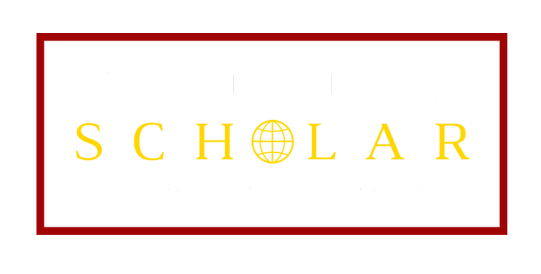One might question the relevance of ancient stories in an era where artificial intelligence and data analytics dominate business decision-making. Yet mythology continues to serve as a powerful tool for organizational transformation, offering timeless lessons that resonate across cultures and industries. Modern leaders who understand how to harness mythological frameworks can create more cohesive, purpose-driven organizations that inspire both employees and stakeholders.
Why Mythology Matters in Business Strategy
Research in organizational psychology demonstrates that narrative-driven leadership significantly impacts employee engagement and organizational culture. When leaders incorporate mythological archetypes and storytelling into their strategic communications, they tap into universal human experiences that transcend cultural and generational boundaries.
The power of mythology lies not in its literal truth but in its ability to convey complex ethical and strategic concepts through memorable, emotionally resonant narratives. Organizations that establish clear moral frameworks and shared values experience higher levels of trust, accountability, and performance.
Modern Applications of Ancient Wisdom
The Icarus Principle: Balancing Innovation with Risk Management
The Greek myth of Icarus offers crucial insights for modern risk management strategies. Rather than viewing this tale as a simple warning against ambition, forward-thinking leaders use it as a framework for sustainable growth. The story teaches us that innovation requires careful balance between bold vision and practical limitations.
Strategic Application: Organizations can implement “Icarus protocols,” which are systematic risk assessment processes that encourage ambitious thinking while maintaining operational safety nets. This approach has proven particularly valuable in technology startups and high-growth industries, where rapid scaling often leads to operational failures.
The Sisyphus Methodology: Persistence Through Continuous Improvement
The myth of Sisyphus, condemned to eternally push a boulder up a mountain, transforms from a tale of futility into a powerful metaphor for continuous improvement and resilience. Modern applications include:
- Agile Project Management: Embracing iterative processes that acknowledge setbacks as learning opportunities
- Change Management: Helping teams understand that transformation is an ongoing process, not a one-time event
- Crisis Leadership: Maintaining focus and determination during prolonged challenges
Building Mythological Frameworks for Organizational Success
Creating Your Organization’s Origin Story
Companies with compelling origin narratives experience higher employee retention rates and increased customer loyalty. Effective origin stories incorporate:
- The Hero’s Journey: Positioning your organization as overcoming significant challenges to serve a greater purpose
- The Call to Adventure: Clearly articulating why your mission matters in the broader context of societal needs
- Transformation and Growth: Demonstrating how challenges have strengthened your organization’s capabilities
Implementing Archetypal Leadership Models
Different business situations call for different mythological archetypes:
- The Wise Mentor (Athena): Ideal for coaching and development initiatives
- The Transformative Leader (Phoenix): Perfect for organizational change management
- The Protector (Hercules): Essential for crisis management and security-focused industries
- The Innovator (Prometheus): Valuable for research and development teams
The Covenant Leadership Connection
Modern leadership theory recognizes the importance of covenant-based relationships — agreements built on mutual respect, shared values, and common purpose. This approach aligns perfectly with mythological frameworks that emphasize:
- Mutual Accountability: All parties commit to upholding shared values
- Empowerment Through Service: Leaders serve as stewards rather than dictators
- Collective Responsibility: Success depends on the entire community’s commitment
Practical Implementation Strategies
Storytelling in Strategic Communications
Integrate mythological themes into your corporate communications:
- Use archetypal characters in case studies and testimonials
- Frame business challenges as heroic journeys
- Celebrate victories as community achievements rather than individual accomplishment
Team Building Through Shared Narratives
Develop team-specific myths that:
- Acknowledge each member’s unique strengths and contributions
- Create shared language and cultural references
- Establish clear behavioral expectations and values
Crisis Management Through Mythological Frameworks
When facing organizational challenges:
- Reference relevant myths that demonstrate resilience and recovery
- Use storytelling to maintain morale and perspective
- Create new narratives that position current difficulties as temporary obstacles
Measuring the Impact of Mythological Leadership
Organizations implementing mythological frameworks report:
- Enhanced Employee Engagement: Improved employee satisfaction scores
- Improved Decision-Making: Better alignment between company values and strategic choices
- Stronger Organizational Culture: Reduced internal conflicts and increased collaboration
- Enhanced Customer Relationships: More authentic and memorable brand experiences
The Future of Mythology in Business
As we advance into an increasingly digital and AI-driven business environment, the human need for meaning and connection is even more critical. Organizations that successfully integrate mythological wisdom with modern technology and data analytics will create sustainable competitive advantages.
The key lies in understanding that mythology doesn’t compete with rational analysis; it enhances it by providing the emotional and cultural context that makes strategic initiatives resonate with human stakeholders.
Embracing Ancient Wisdom for Modern Success
As Heraclitus observed, “The only constant is change.” The strategic integration of mythology into business leadership represents more than a creative exercise. It’s a fundamental shift toward human-centered, purpose-driven organizations. Connecting ancient wisdom with contemporary challenges can create environments where both people and profits thrive.
The power of mythology in business lies not in escapism, but in its ability to reveal universal truths about human nature, organizational dynamics, and the eternal quest for meaning in work. Leaders who master this integration will find themselves equipped with timeless tools for contemporary success in building a more secure and sustainable world.
Generative Ai disclaimer: This post was rewritten by our custom work space on you.com. Feel free to read the original prompt and transcript here.
Related
Discover more from The Cultured Scholar Strategic Communications | Strategic Intelligence
Subscribe to get the latest posts sent to your email.
